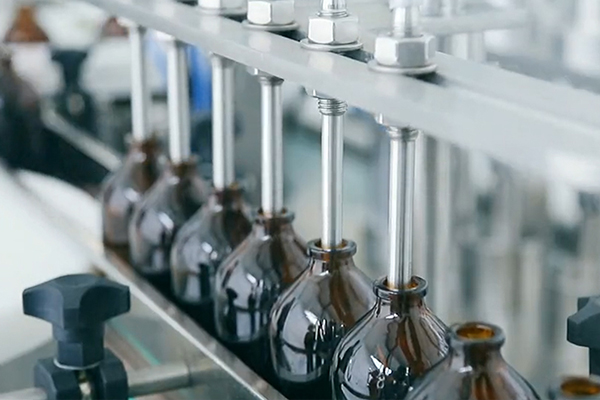Release Date:2024-07-19 15:53:37 Popularity:
With the advancement of the fourth industrial revolution, automated production lines play an increasingly important role in modern industry. In order to ensure the efficient operation of automated production lines and the stability of product quality, it is particularly important to formulate and follow automated production line standards. These standards not only cover technical specifications and quality control, but also include safety, environmental protection and sustainable development. This article will explore the importance of automated production line standards, their main contents and their role in promoting industrial intelligence.

I. The importance of automated production line standards
Automated production line standards refer to a series of technical and management specifications that need to be followed in the automated production process. Its importance is reflected in the following aspects:
1. Improve production efficiency: Through standardized operating procedures and technical specifications, automated production lines can achieve efficient and continuous production, reduce downtime and resource waste.
2. Ensure product quality: A standardized quality control system ensures consistent product quality in each production link, reduces the defective rate and improves customer satisfaction.
3. Enhance safety: Automated production line standards include strict safety specifications to prevent equipment failures and operating accidents, and ensure the safety and health of workers.
4. Promote technological innovation: Standardization provides a framework and basis for the research and development and application of new technologies, which is conducive to technological progress and industrial upgrading.
5. Promote international cooperation: Unified standards help enterprises in different countries and regions to conduct technical exchanges and cooperation, and promote the development of global industry.

II. Main contents of automated production line standards
Automated production line standards cover all aspects from design, manufacturing to maintenance, and the main contents include:
1. Technical specifications: including technical requirements for equipment selection, system integration, software development, etc., to ensure the overall performance and reliability of automated production lines. For example, the selection and configuration of sensors, controllers and actuators should comply with relevant technical standards.
2. Quality control: including quality control specifications for raw material inspection, production process monitoring and finished product testing, to ensure the consistency and stability of product quality. For example, using statistical process control (SPC) and total quality management (TQM) methods to monitor and optimize the production process in real time.
3. Safety management: including management specifications for equipment safety, operation safety and environmental safety, to prevent various safety hazards in the production process. For example, formulate detailed operating procedures and emergency plans, and conduct safety training and drills regularly.
4. Environmental protection requirements: including environmental protection requirements for the treatment of waste gas, wastewater, solid waste and resource utilization efficiency, to reduce negative impacts on the environment. For example, adopt energy-saving equipment and processes to optimize energy use and waste treatment.
5. Maintenance and care: including maintenance and care specifications for equipment maintenance, fault diagnosis and repair, to ensure the long-term stable operation of the production line. For example, formulate regular maintenance plans and use predictive maintenance technology for fault prevention.

III. The role of automated production line standards in promoting industrial intelligence
Automated production line standards play an important role in promoting industrial intelligence:
1. Promote intelligent manufacturing: Standardized automated production lines provide a solid foundation for intelligent manufacturing, and realize the intelligence and automation of the production process by integrating advanced sensors, control systems and data analysis tools.
2. Improve data utilization: Standardized production processes and data collection methods enable data to be collected and analyzed efficiently and accurately during the production process, providing a scientific basis for production optimization and decision-making.
3. Enhance flexible manufacturing capabilities: Standardized production lines can quickly adapt to the production needs of different products, improve production flexibility and response speed, and meet the personalized and diversified needs of the market.
4. Realize supply chain collaboration: Unified standards help enterprises to coordinate production and supply chain management, and improve the efficiency and responsiveness of the overall supply chain.
5. Promote green manufacturing: Through strict environmental protection standards and resource utilization efficiency requirements, automated production line standards help to achieve green manufacturing, reduce energy consumption and environmental pollution.

IV. Implementation cases of automated production line standards
1. Automobile manufacturing: After a large automobile manufacturer introduced the automated production line standard, it integrated advanced robots and intelligent control systems to achieve efficient operation of the production line and stable product quality. Production efficiency increased by 20% and defective rate decreased by 15%.
2. Electronic products: An electronic product manufacturer has achieved full automation and intelligence of the production process by implementing the automated production line standard. The consistency and reliability of the products have been significantly improved, and the market competitiveness has been greatly enhanced.

To sum up, as an important cornerstone of modern industry, the automated production line standard not only improves production efficiency and product quality, but also plays an important role in promoting technological innovation, enhancing safety, and promoting international cooperation. In the future, with the continuous advancement of science and technology and the deepening of application, the automated production line standard will continue to lead the development of industrial intelligence and contribute to the high-quality development of global industry.